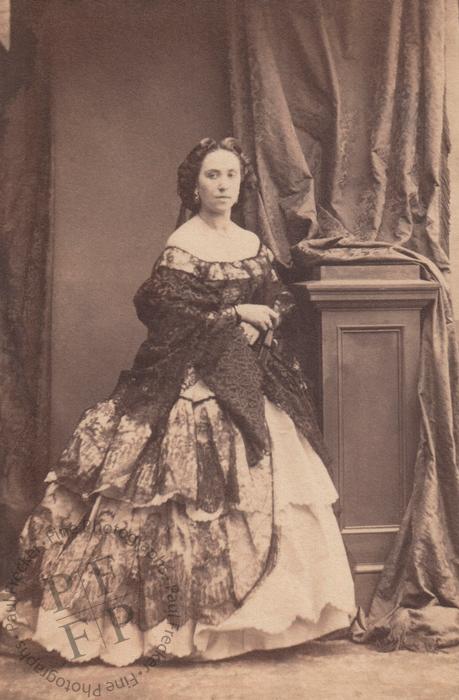Ròza Csillag
(1832-1892)
Born Ròza Goldstein on 23 October 1832 at Irsa [today Albertirsa] in central Hungary, her father Moritz Goldstein was a hazzan [cantor] in the local synagogue. By 1849 she had joined the chorus of the Hungarian National Theatre in Budapest, where she attracted attention in the roles of Nancy in Friedrich von Flotow’s Martha and of Mátyás Hunyadi in Ferenc Erkel’s Hunyadi László.
In 1850 she joined the Vienna Court Opera, on the recommendation of the noted soprano Anna de La Grange, where she received further training from the Kapellmeister and composer Heinrich Proch, most notably appearing in the role of Fides in Giacomo Meyerbeer’s Le prophète. Her beautiful mezzo-soprano voice delighted audiences and she remained a favourite at the Vienna Court Opera until 1873. She also toured widely around Europe with much success, and in 1870 sang in New York. She made her London debut in 1859 as Fides in Le prophète. ‘Her voice is a powerful mezzo-soprano, of good quality, though not rich in tone, and under perfect command. Her acting is full of intelligence and enthusiasm’ (Brighton Gazette, 5 May 1859, quoting a review that had earlier appeared in Musical World).
In 1852 she had married the celebrated German magician Carl Herrmann and was therefore sometimes known professionally as Madame Herrmann-Csillag or as Madame Hermann Csillag [sic]. The opera singer and actress Blanche Corelli was their daughter.
When her voice began to deteriorate she became a singing teacher at the Vienna Conservatoire. She died in Vienna on 20 February 1892 and was buried in the city’s Central Cemetery.
‘Madame Rosa Csillag, the prima donna, who died in great poverty, was buried yesterday in Vienna, at the expense of a number of former admirers. There were several wreaths on the coffin’ (London Evening Standard, 23 February 1892).
‘It has come out that for the last two years she has been living in great distress. She was a helpless cripple, and her last days she spent suffering from hunger. She lost her voice some eighteen years ago, and was dismissed from the Vienna Opera and forgotten. She gave lessons in singing for some years, but she soon ceased to attract pupils. In her last years she was reduced to such poverty that for want of decent clothing she could not leave her lodging. When quite young she was married to the late conjuror, Professor Hermann, but after a short time she was divorced from him. No case of such extraordinary vicissitude of fortune is remembered in the world of art in Vienna for many years past’ (Ayr Observer, 1 March 1892).

